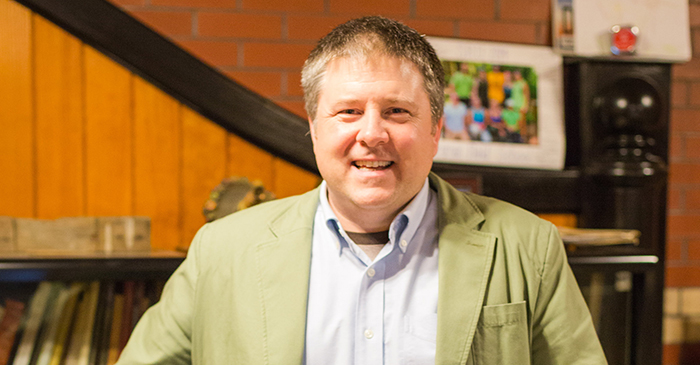By Vicki-Ann Downing
Basketball courts at a Providence park have been transformed into a public art installation thanks to a team of alumni, staff, and students from Providence College.
Bold and vibrant patterns of color — the design of Providence mixed-media artist Jim Drain — now decorate the surface of adjacent basketball courts at Fargnoli Park on Smith Street, a short walk from PC’s campus. The project was accomplished with $45,000 in contributions from Friends of Friars Basketball, $15,000 from Providence College Galleries, and the labor of 130 volunteers, including PC students.
“The basketball court is a great bridge between the College and the community,” said Chris Carter ’11 & ’14G, president of Friends of Friars Basketball. “It makes a big statement. It’s a rare concept to be able to renovate a court in artistic fashion. And if it’s unique enough to get kids to go outside and play more often, that alone is a worthwhile endeavor on our part.”…Click to Read More



